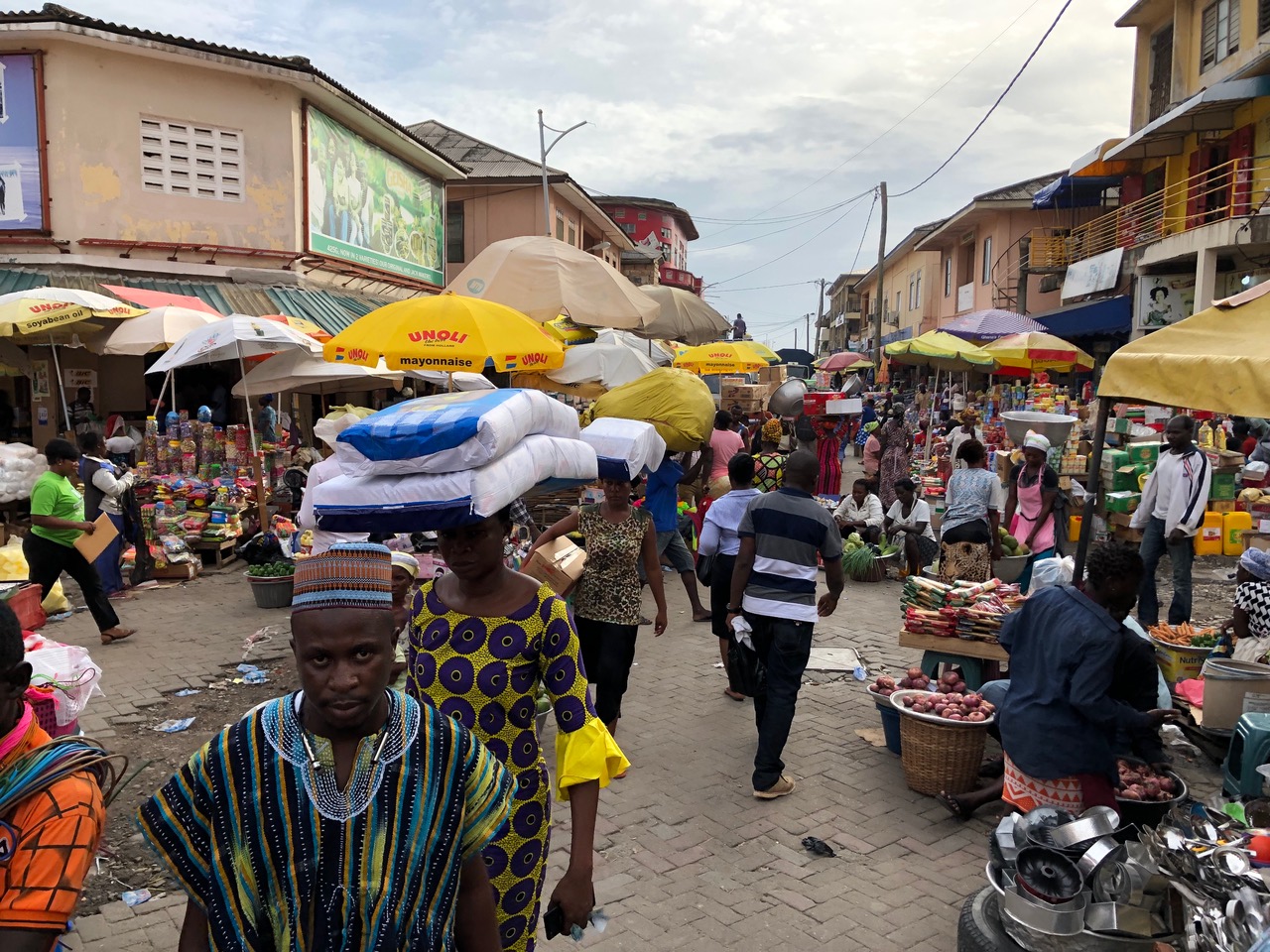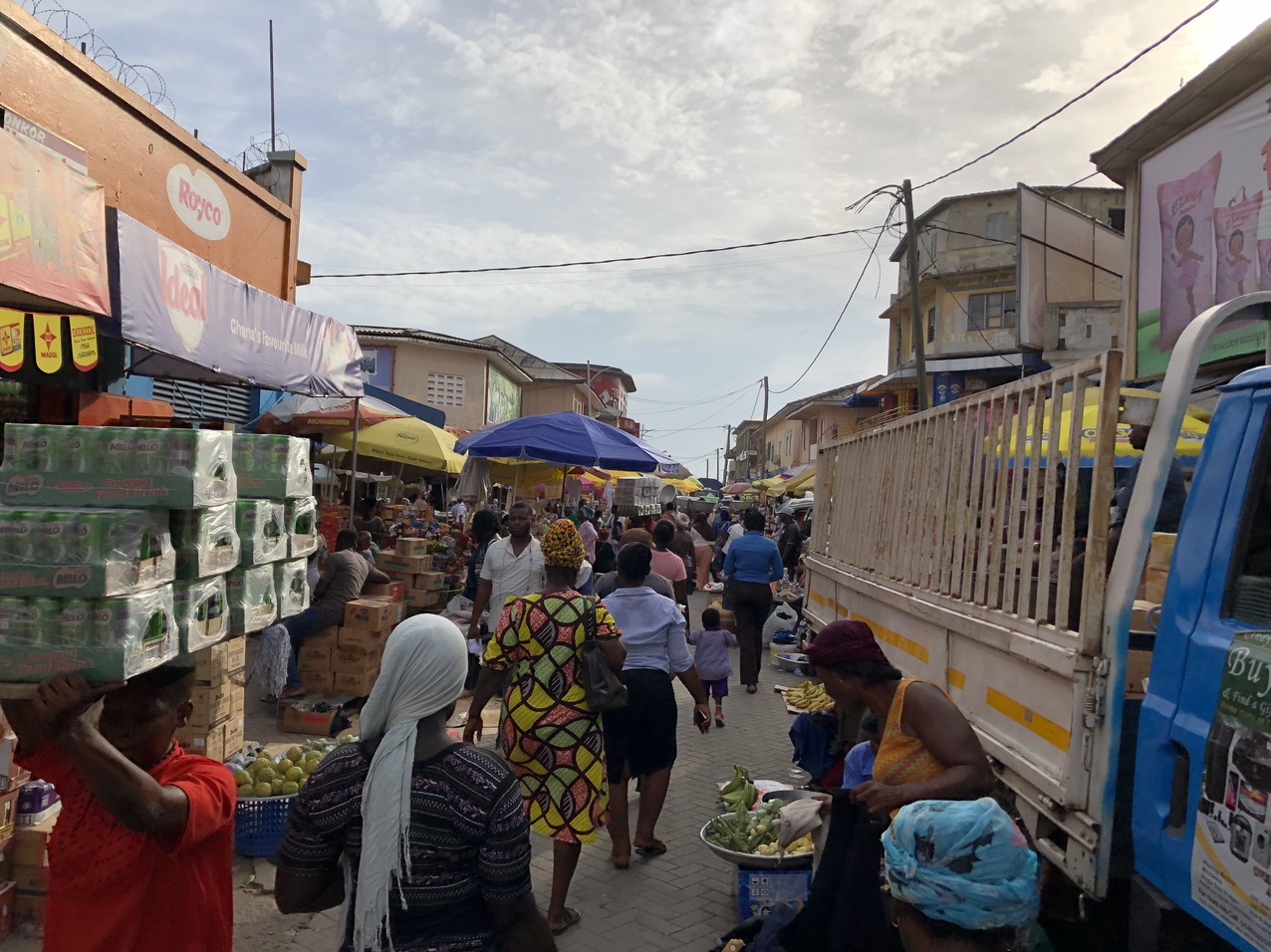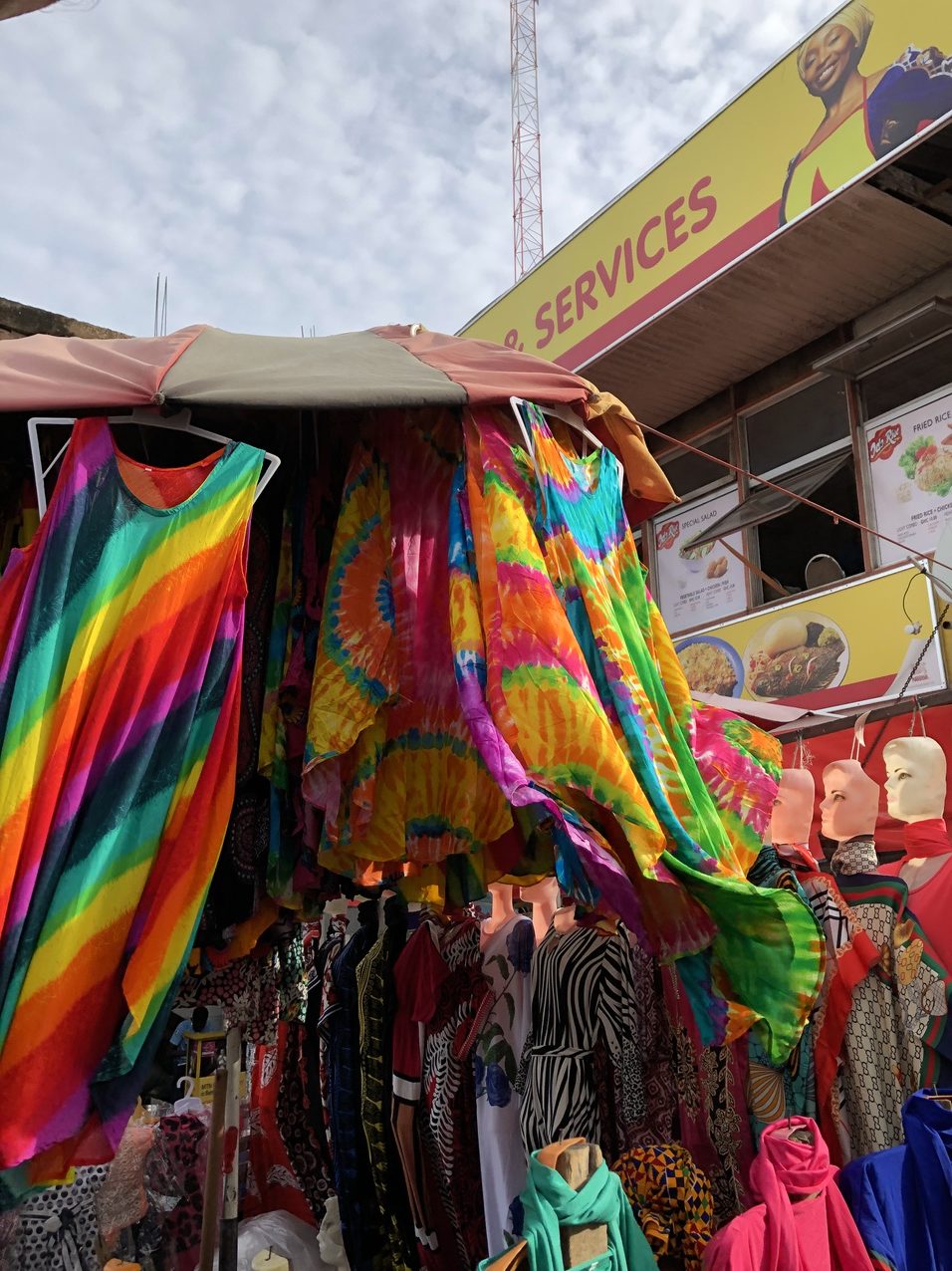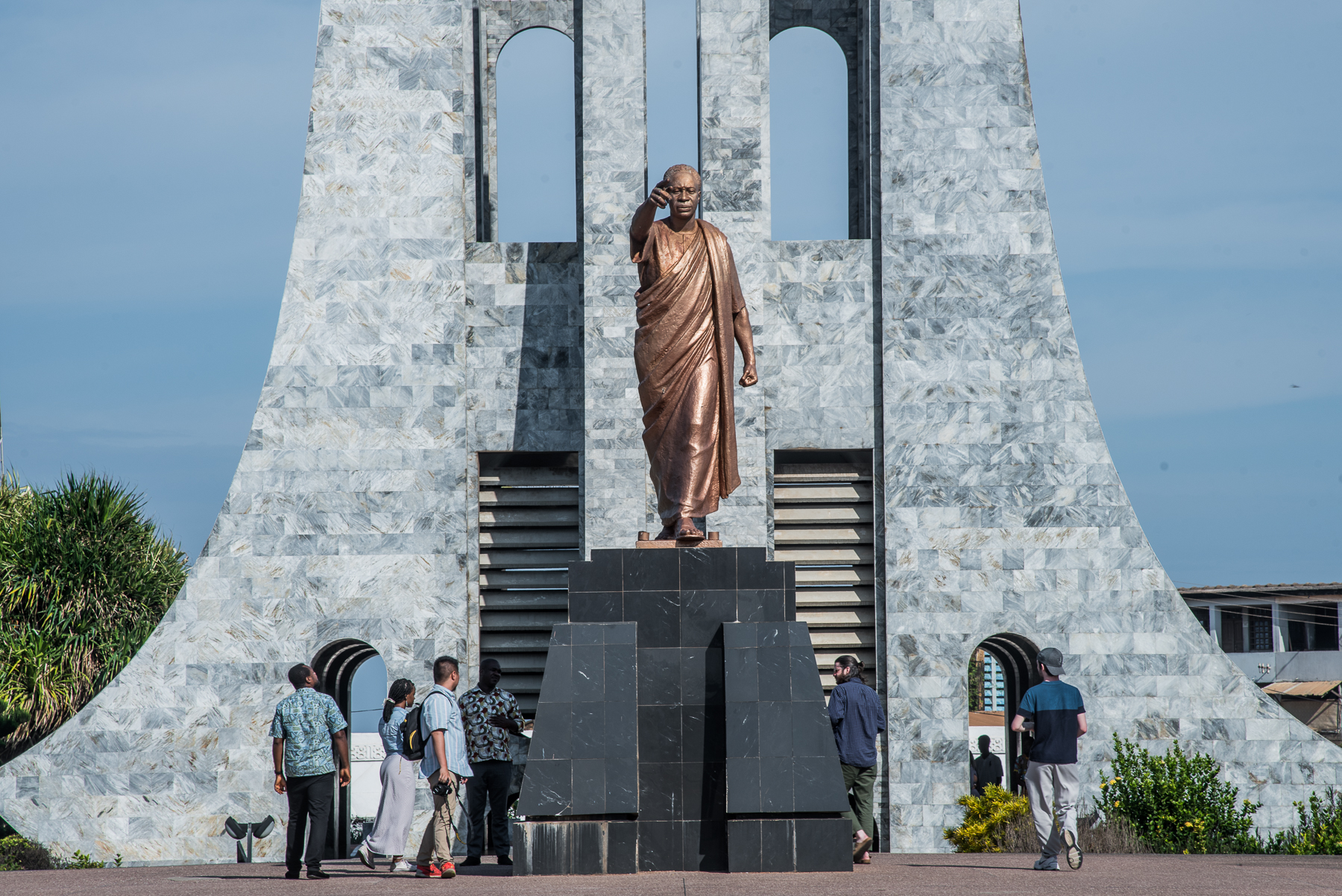by Andrew Califf
Makola Market in Accra bustles with activity. Kaleidoscopic rainbows of color compete with the cacophony of chaotic noises enveloping the market for attention. The snails and crabs and other assorted oceanic delicacies dominate a visitor’s sense of smell. Clothing and accessories adorned with Supreme, Gucci and Louis Vuitton labels and patterns blanket the stalls and tables along the market’s streets.
Markets and other forms of informal economy are integral aspects to Ghana’s economic growth and maintenance, and they trump the western mall culture. Many people rely on the market’s wares. The people carrying bags of clothes and boxes of food on their heads shoot down the streets, weaving around buyers, sellers, trucks and carts.  This buzz is photogenic, but the uninformed traveller will likely be surprised if they pull out their Nikons. There is a major social taboo surrounding taking someone’s picture. The tourist would likely be interrogated and accosted if they didn’t initially seek approval, and there is no guarantee they would get approval.
This buzz is photogenic, but the uninformed traveller will likely be surprised if they pull out their Nikons. There is a major social taboo surrounding taking someone’s picture. The tourist would likely be interrogated and accosted if they didn’t initially seek approval, and there is no guarantee they would get approval.
Baaba Aggreuy-Calchy works at the Jamestown Cafe and operates an airbnb. Sometimes she takes the guests to the market, and when they want to take pictures, Baaba talks to the vendors. She tells the vendors they are her friends, they are not journalists, and they are not going to use the pictures for anything.
Aggreuy-Calchy is not the only one doing this when guiding tourists into the market. Kathrine, Dominik and Dan who did not want to disclose their last names, were guided through Makola Market by another Ghanaian guide and a couple of boys from Jamestown. Kathrine didn’t notice the glares that Dan stated were shot their way by multiple vendors. “Yeah, there were a few glares,” Dominik said in agreement with Dan, “but our guide told them to piss off.”

There is a disconnect between the tourists wanting to capture their experience at the market and the people working just wanting to sell and buy. Some tourists struggle with or dismiss how some of the Ghanaians in the market feel objectified by their daily lives being used to net tourist money.
There are less harmful ways to experience the market, specifically taking part in the daily activities. Aggreuy-Calchy shows tourists the shopping ropes at the market. “I show them what sort of fabrics and clothing we have in Ghana, and I tell them this is from China, this is from Ghana, this is from US,” Baaba said. “I show them the good one they are supposed to buy.” Treating the market like a market, not a tourist attraction, and shopping there like it is a market helps immerse visitors more fully and avoids offending the shopkeepers trying to hawk their wares.

